Rotomolded products are seamless, uniform in wall thickness and of single construction, which eliminates costly fabrication processes and the need for replacement parts. Rotomolded products include safety cones, plastic tanks, footballs, helmets, kayaks, playground slides, pipe fittings and outdoor planters. Read More…
As a full-service rotational molding company, Roto Dynamics is your source for high quality, custom rotomolded products. Since our inception, we have continued to earn success by closely working with our customers, developing innovative and tailored solutions. We are with you every step of the way, from design and development to production and assembly. For a complete view of our capabilities and ...
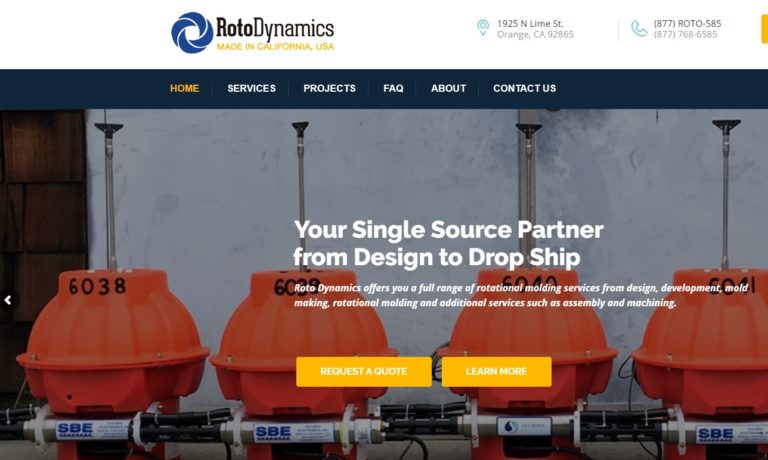
We are a custom manufacturer of rotationally molded products. Our state of the art technology creates precise, cost effective and dependable products. Whether your order is large or small, we want to be sure you are satisfied.
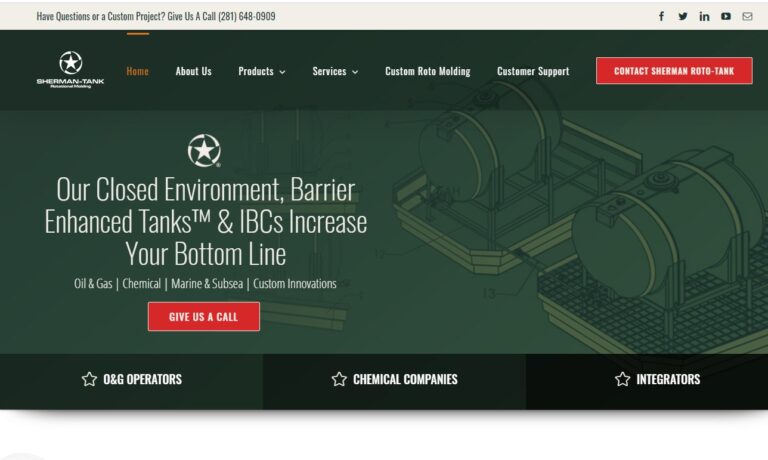
Western Industries Plastic Products, LLC, specializes in large-part plastic blow molding. We provide expertise and services in product design, process improvement, and product assemblies. We offer our customers comprehensive services and turnkey opportunities to achieve their specific project goals. We can assist with: R&D, product design, product improvement, and secondary-fixture design. For...
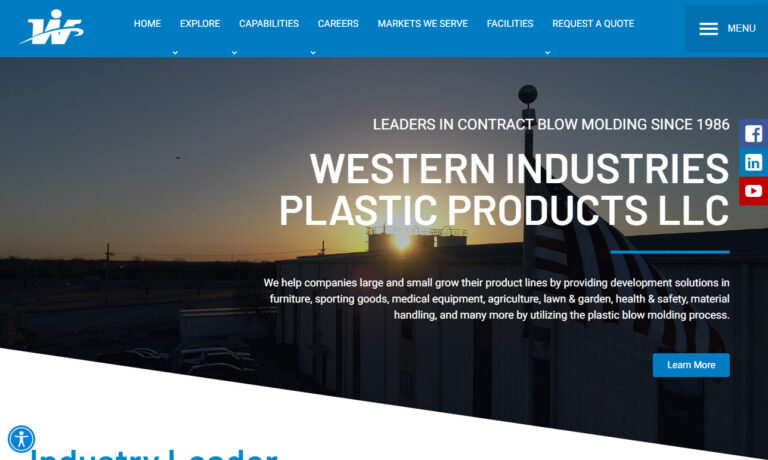
Michiana Rotational Molding provides unparalleled rotational molding services that ensure efficient design, innovation, and functionality. Based in southwest Michigan, the company offers engineering, prototyping, finishing, design consulting, and quality control services. It has experience creating solutions for clients in the marine, home and garden, RV, and material handling industries and more ...
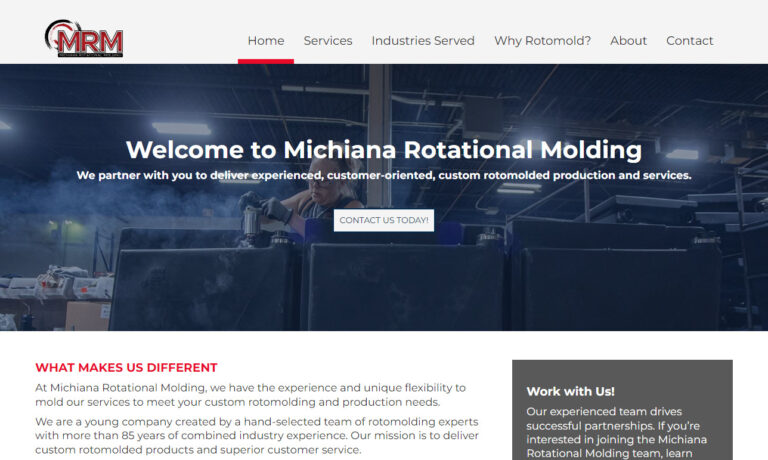
We provide outstanding custom plastic rotational molding. Our teams offer short lead times and we will assist you from concept to production. All of our materials and designs are FDA approved and we can handle the most complex projects. We are your one stop shop for all of your rotational molding needs. Give us a call today to learn more information!
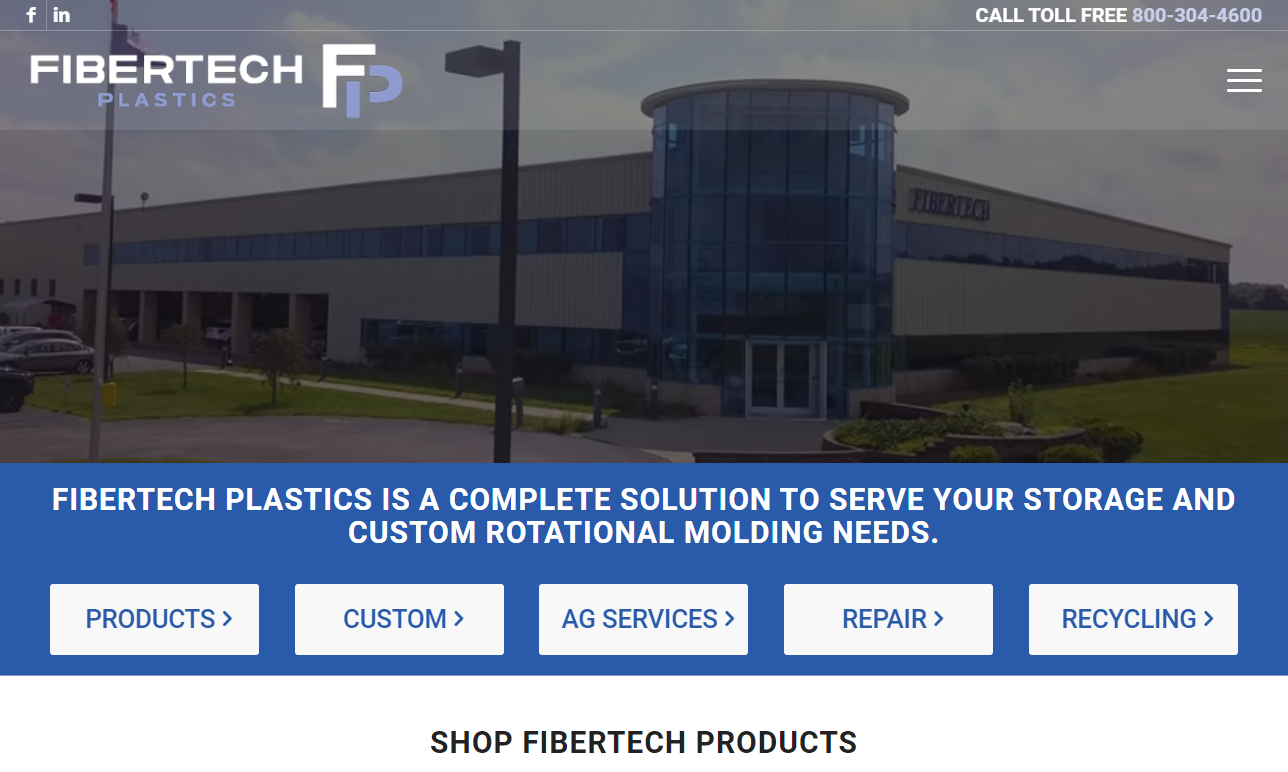
Our warehouses and equipment are designed to protect the quality and condition of the rotationally molded plastic products we sell and process. Our facilities feature state of the art equipment, and are run by a team of dedicated staff members who will help you find what you need. Contact us today!
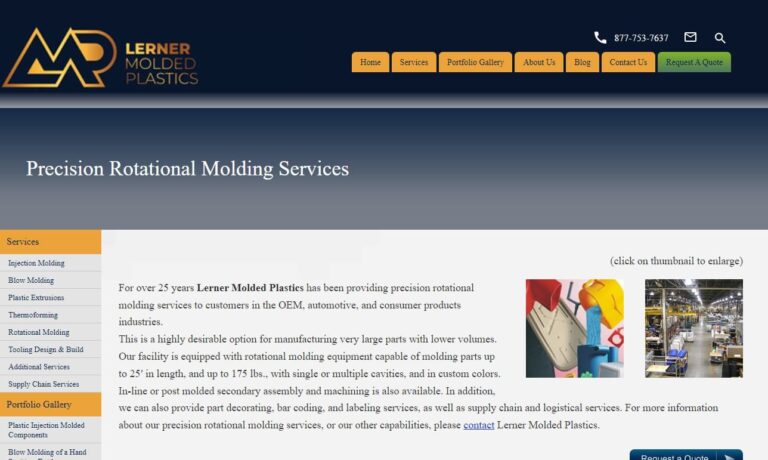
Here at Hedstrom, we specialize in engineering, designing and manufacturing rotationally molded plastics; chemical and fuel tanks; retail displays; lawn and garden items; medical supplies; recreational, toy, sport and playground objects, plus more. Contact us about your roto molding needs.
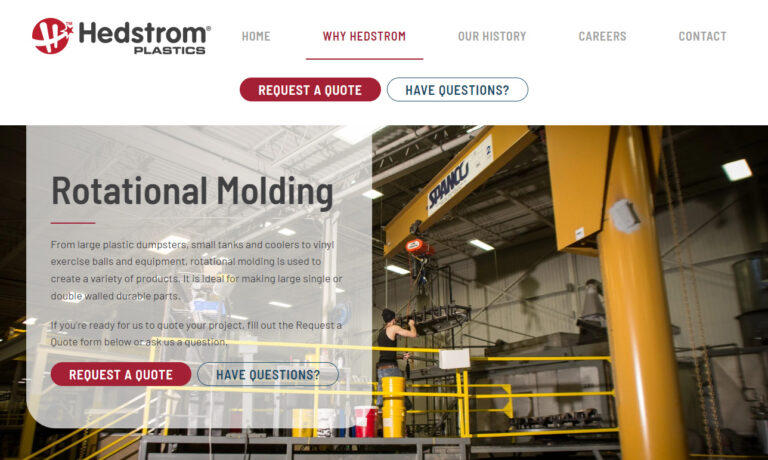
At Axisnorth Solutions, we specialize in crafting innovative solutions through our rotational molding, blow molding, and vacuum forming expertise. With a collective commitment to precision and excellence, we bring a wealth of experience to the table. Our seasoned team leverages cutting-edge techniques in rotational molding to produce seamless and durable products. Our meticulous attention to...
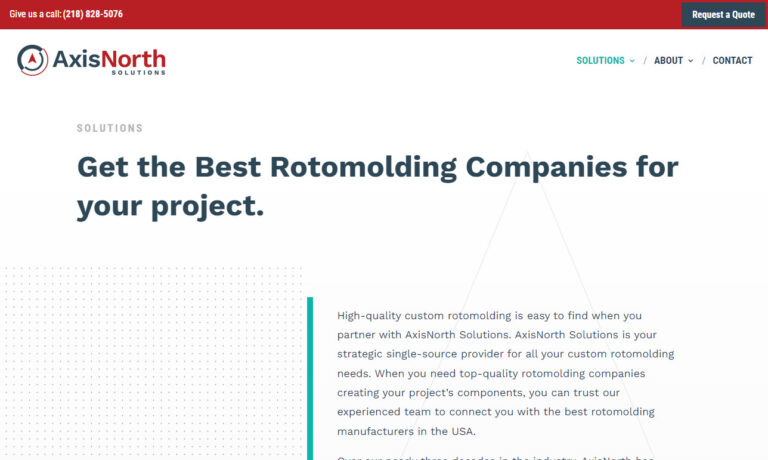
More Rotomoulding Companies
The most common thermoplastic material used in the rotomoulding process is polyethylene, other materials include polypropylene, polyvinylidene fluoride, nylon and polyvinyl chloride. These high purity plastics are exposed to high heat and therefore must exhibit good thermal stability. To enhance properties like flame retardancy, water and chemical resistance as well as the ability to withstand extreme temperatures, many resin powders contain additives, which can also alter the color, texture, finish and appearance of the cured plastic's surface.
Rotomoulding is an alternative to blow molding, injection molding and thermoforming, but is not as common because of the large, expensive machinery that is used to form the products. Still, this molding process is used within the sporting goods, waste water management, marine, sporting goods, pharmaceutical, construction, toy manufacturing, food and beverage processing, chemical, plumbing, agricultural, furniture, packaging and material handling industries, among others.
The rotomoulding process begins with fabricating the mold by welding, for simpler designs, or die casting, for more complex constructions. The molds are made of stainless steel, aluminum or a combination of both, when wall thickness is not uniform. The rotomoulding machine is composed of a series of different molds, which are mounted on rotating spindles and revolve on one or two axes. The polymer resin powder, which must be very fine in order to coat all areas of the mold, is poured and sealed in. The rotomoulding machines are then transported to an oven chamber while they continuously revolve. Once under high heat, the powder melts and evenly covers the mold walls.
Next, it travels to a cooling chamber, which uses a combination of cold water and air to cure the plastic. This takes about 20 minutes. Once the plastic has fully dried, the molds are manually unloaded, which can be difficult if the plastic shrinks. Right out of the mold, rotomoulded products are hollow parts without any openings or holes; they are cut out if needed. The plastic is often cleaned, polished, painted or welded with small components as final post-forming fabrications.

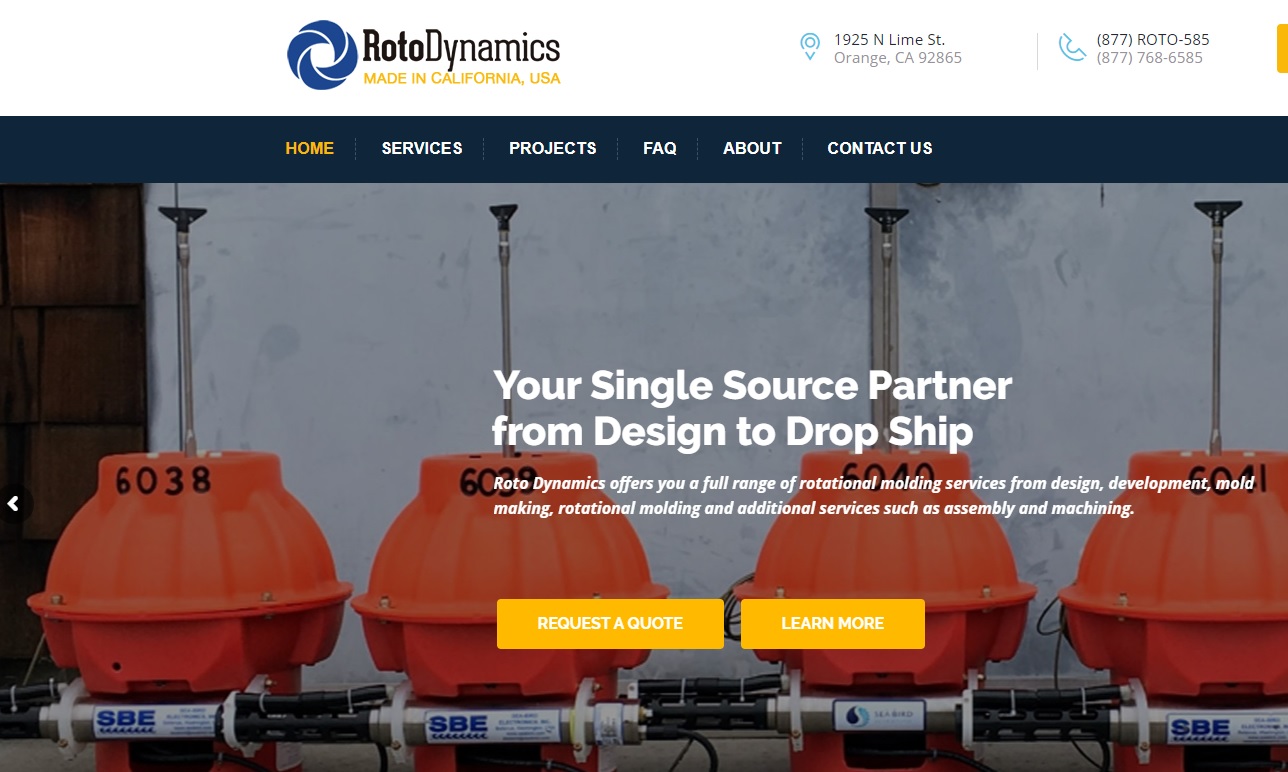
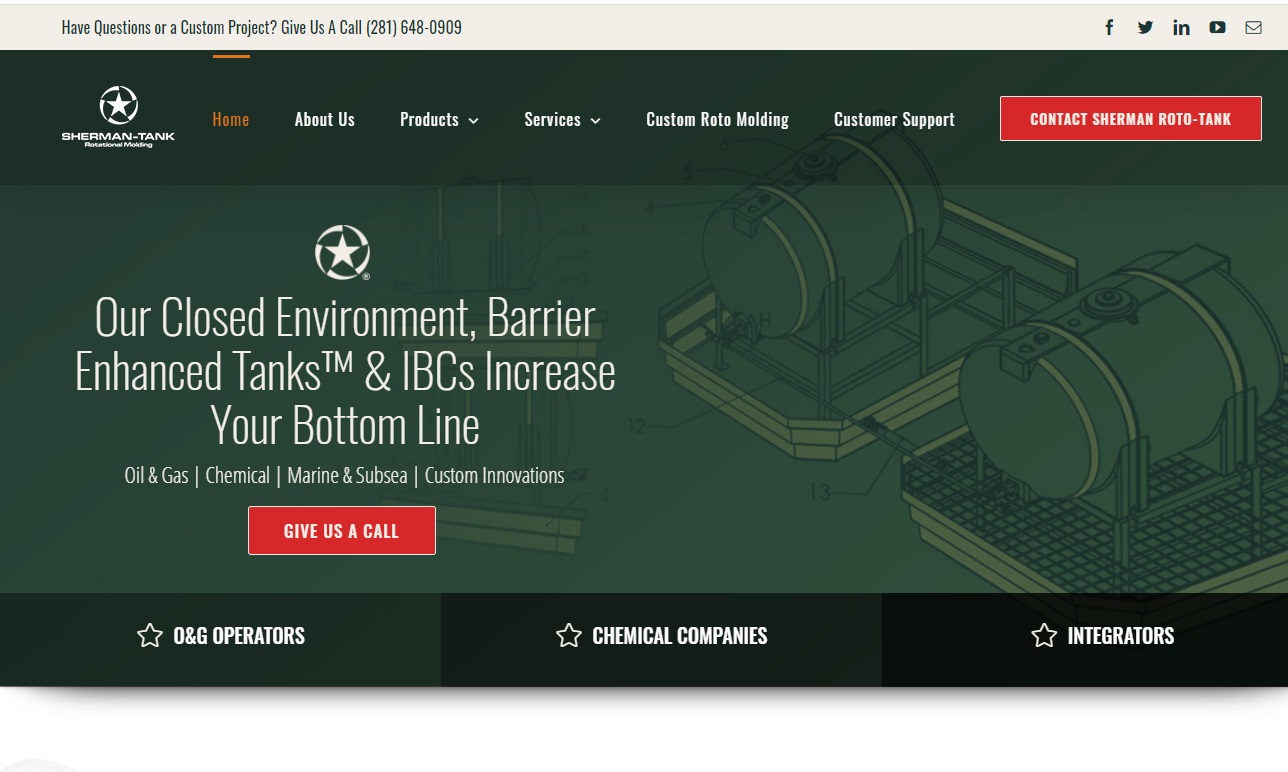
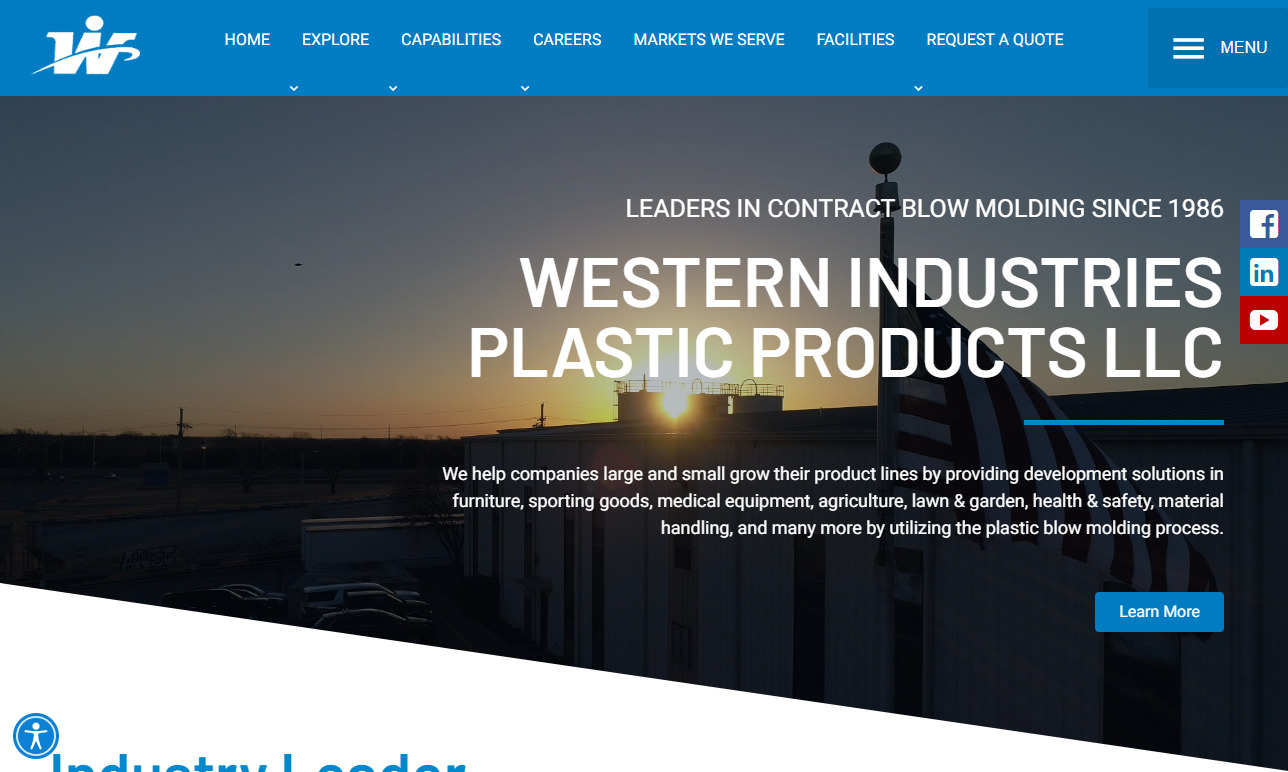
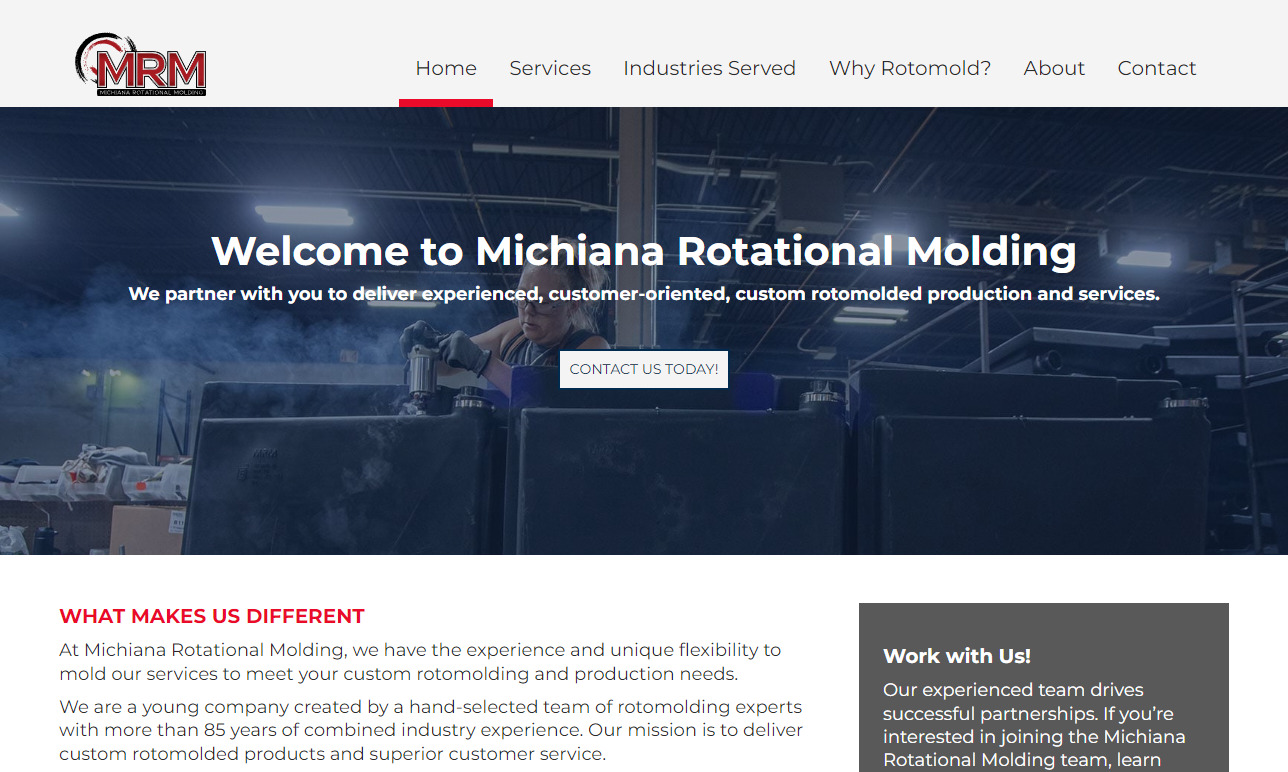
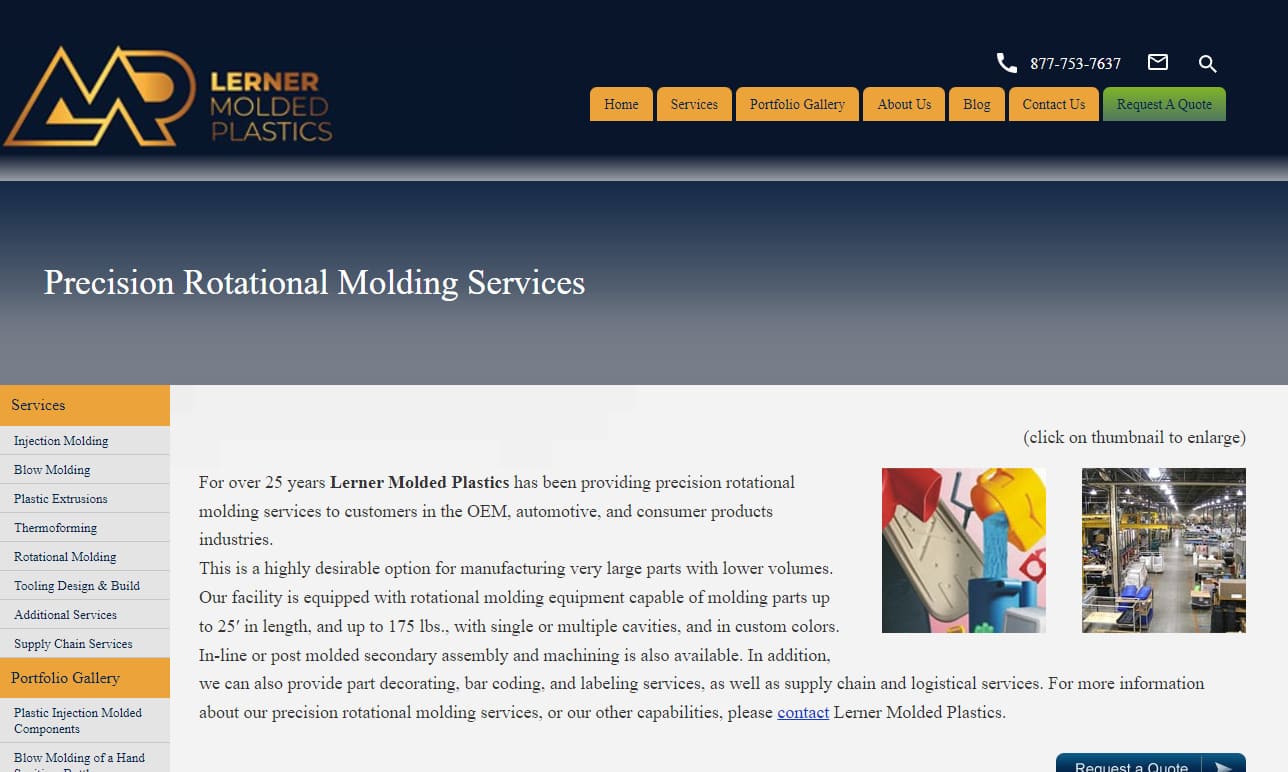
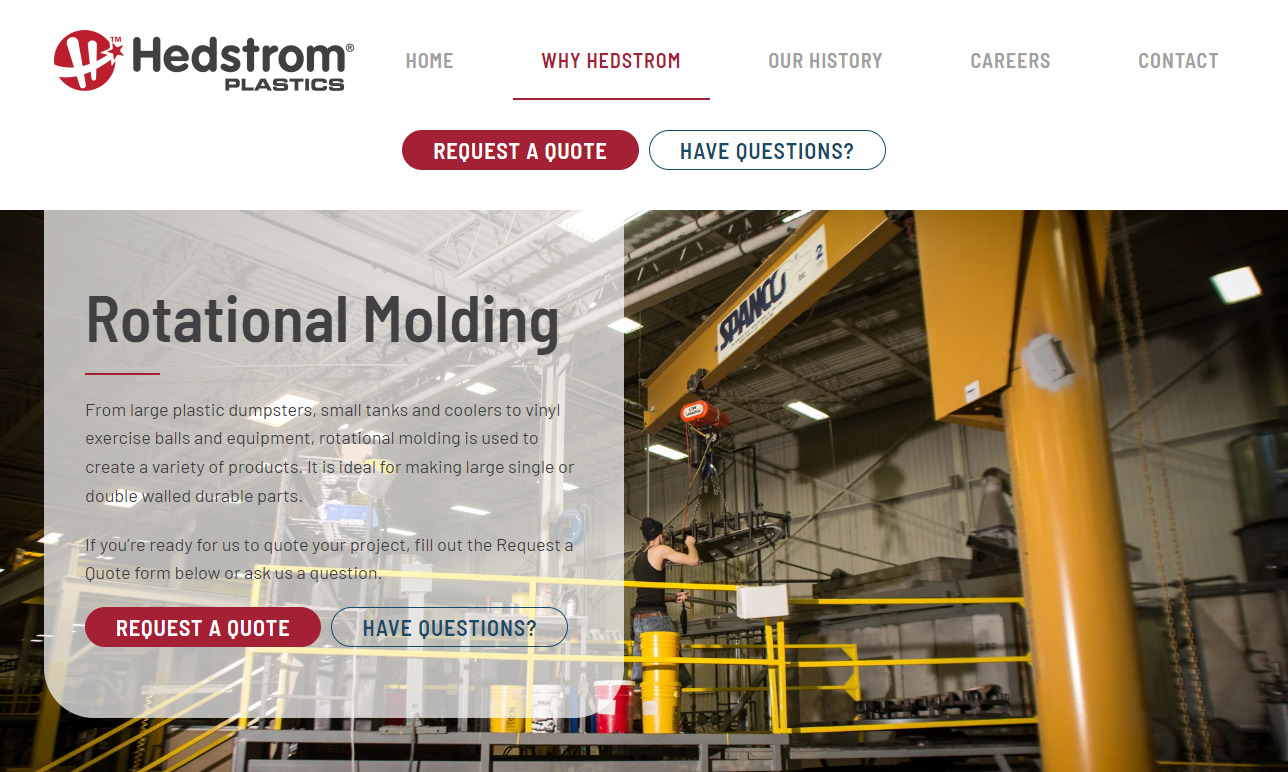
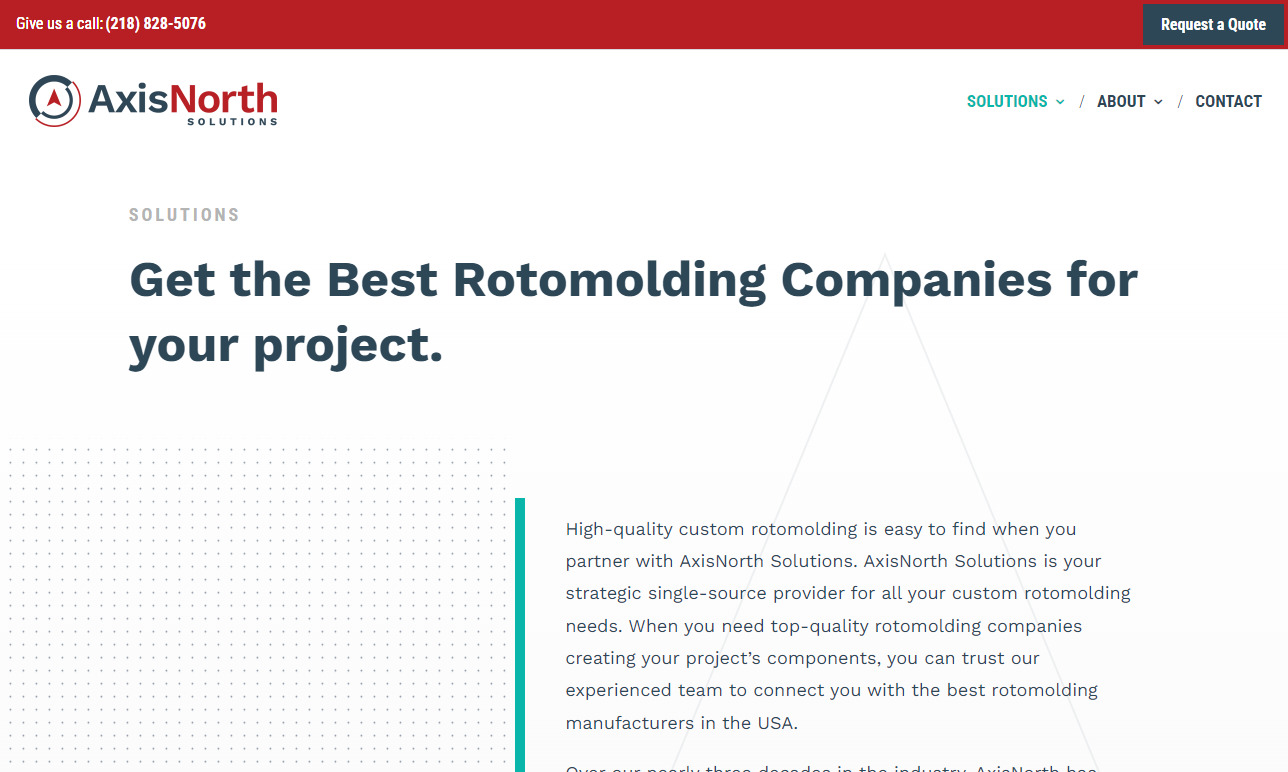
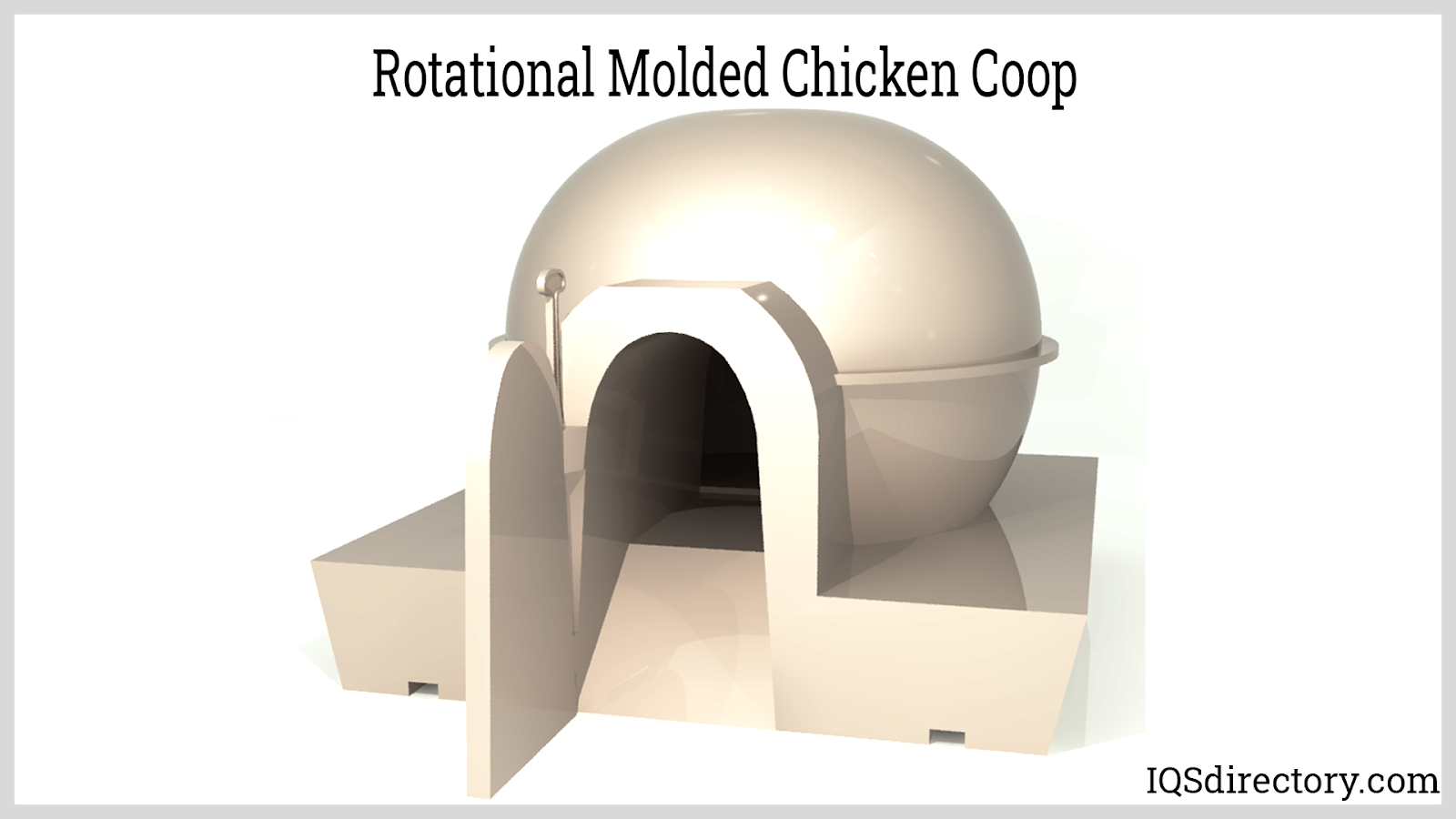
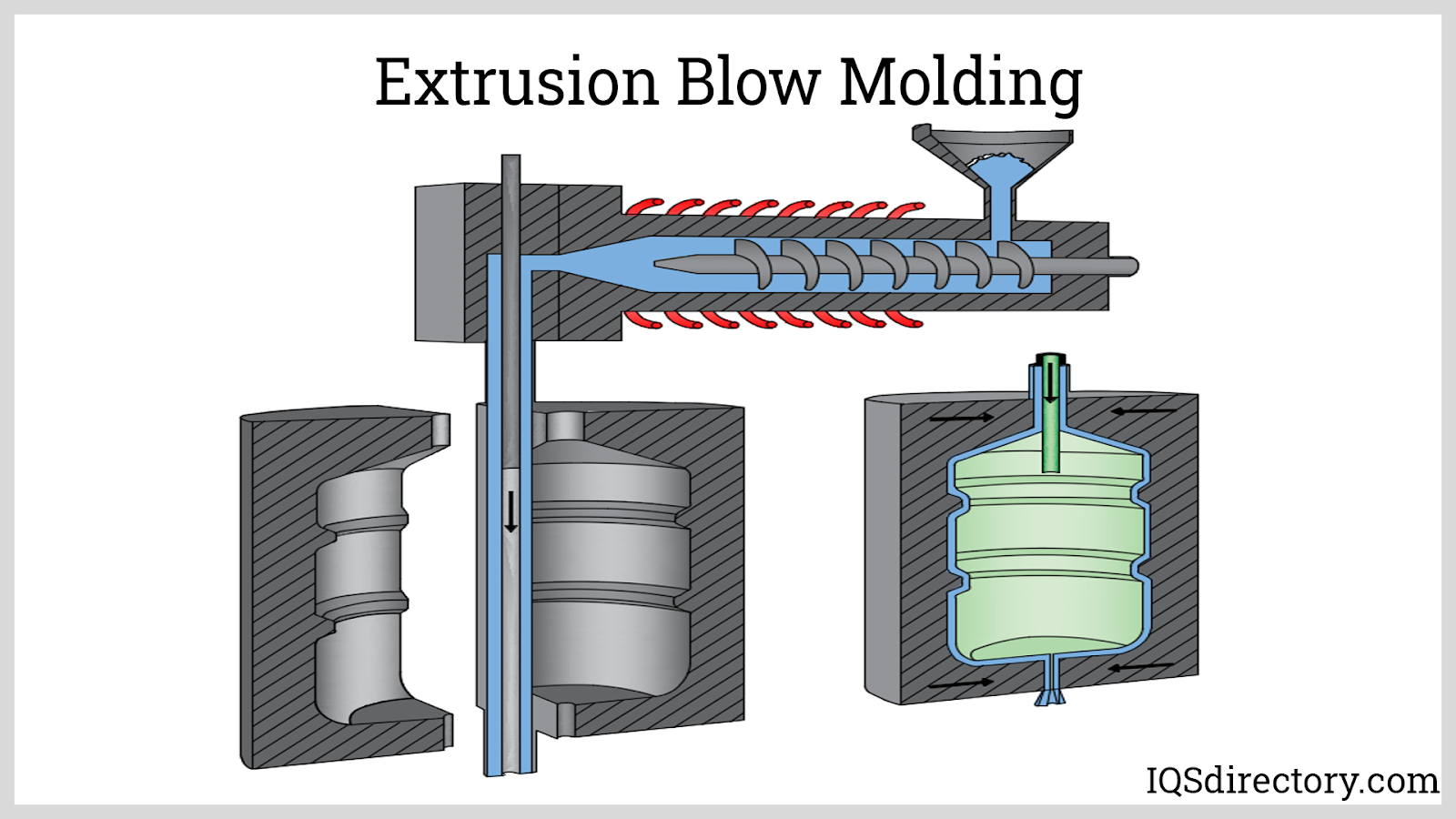
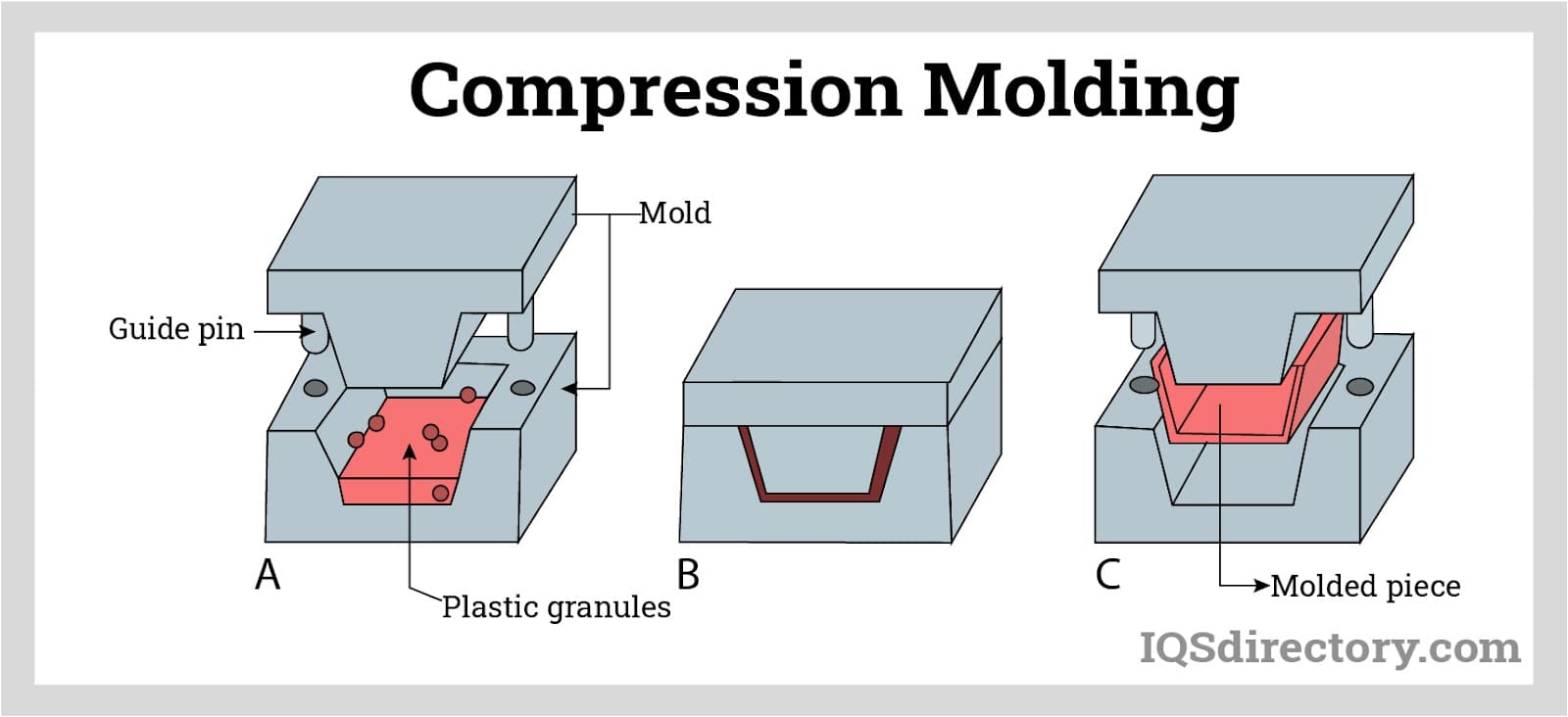
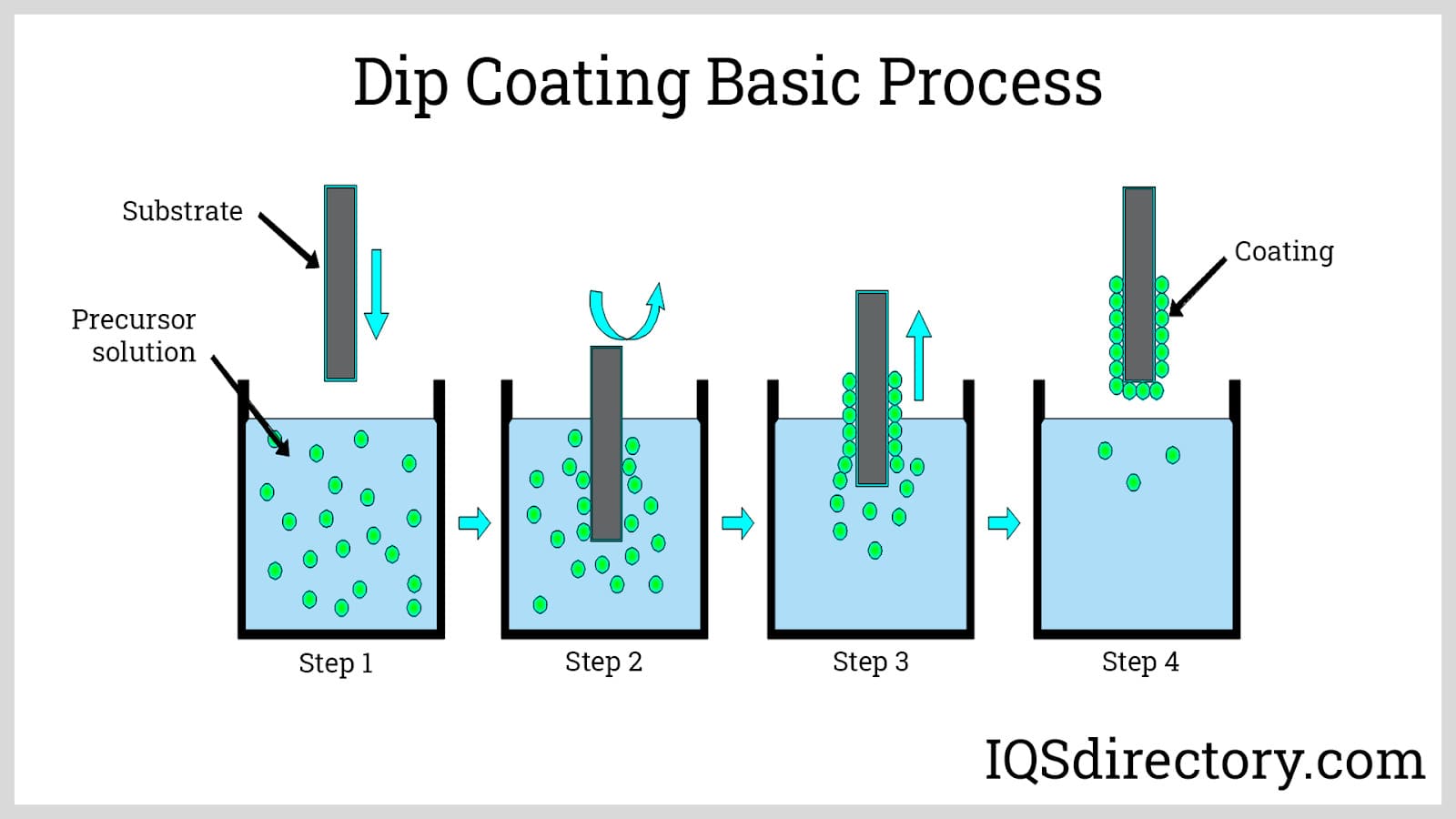
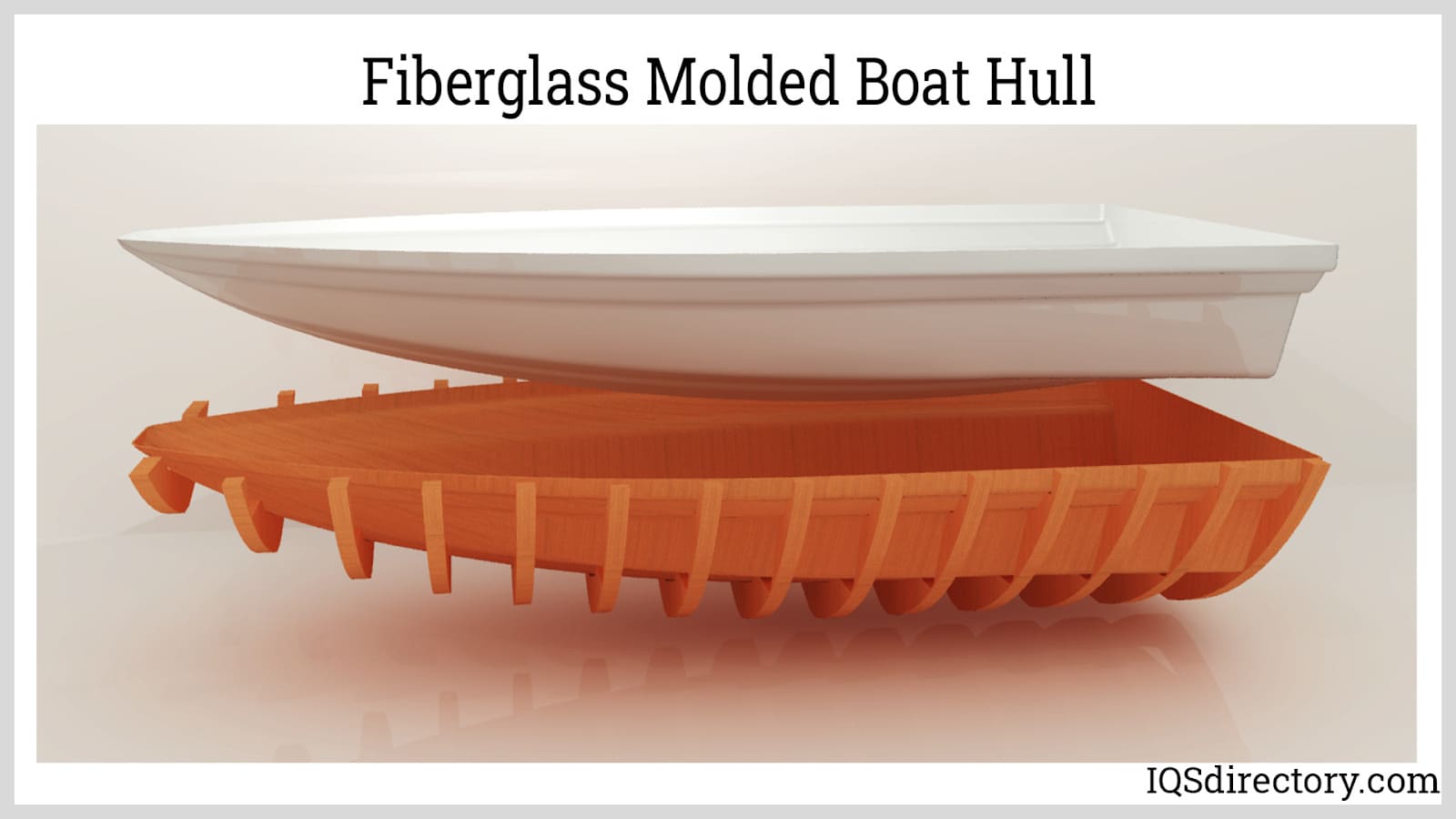
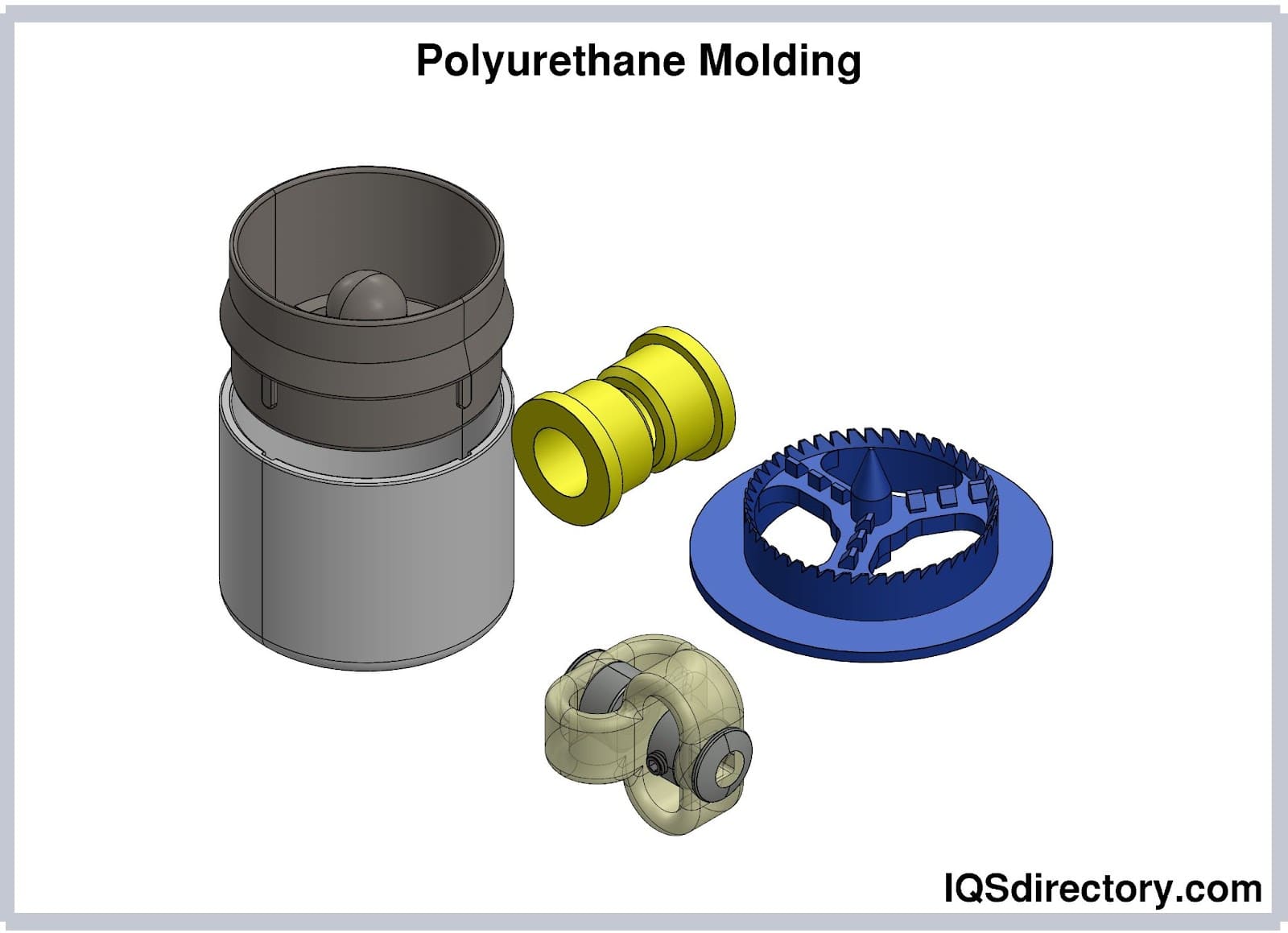
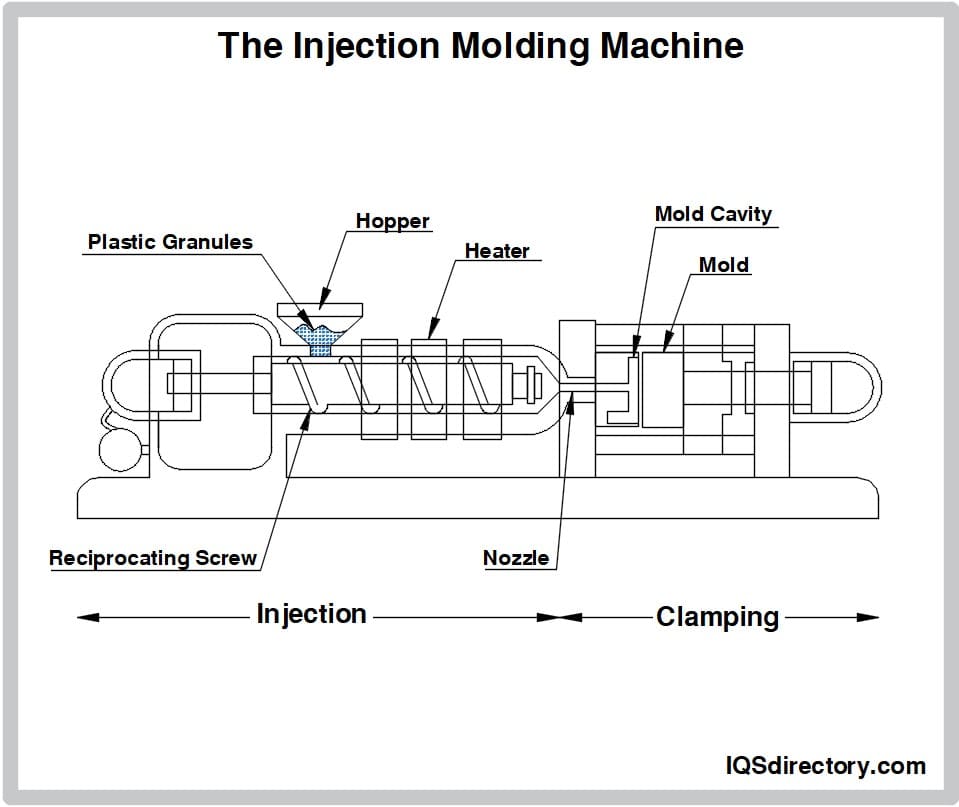
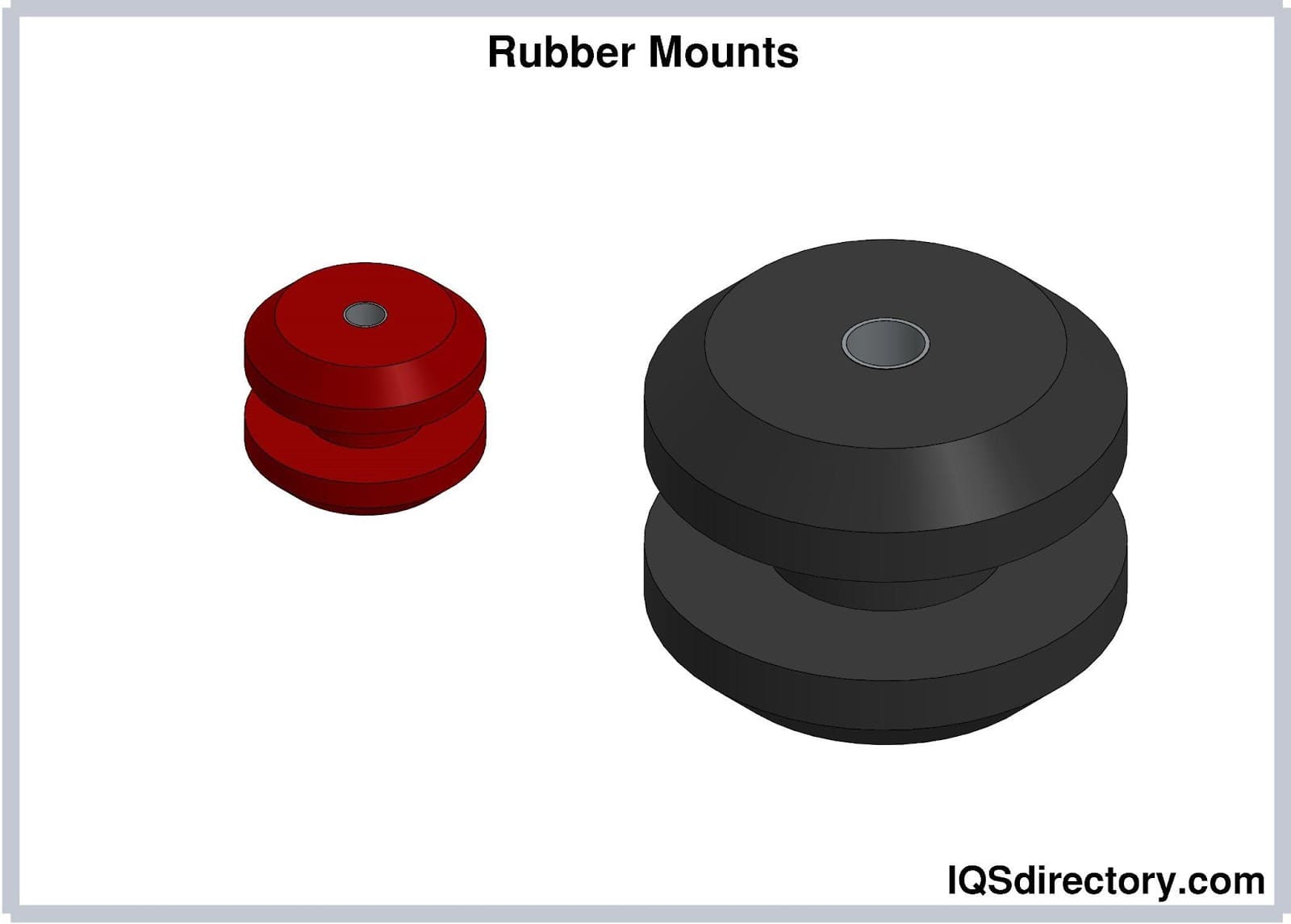
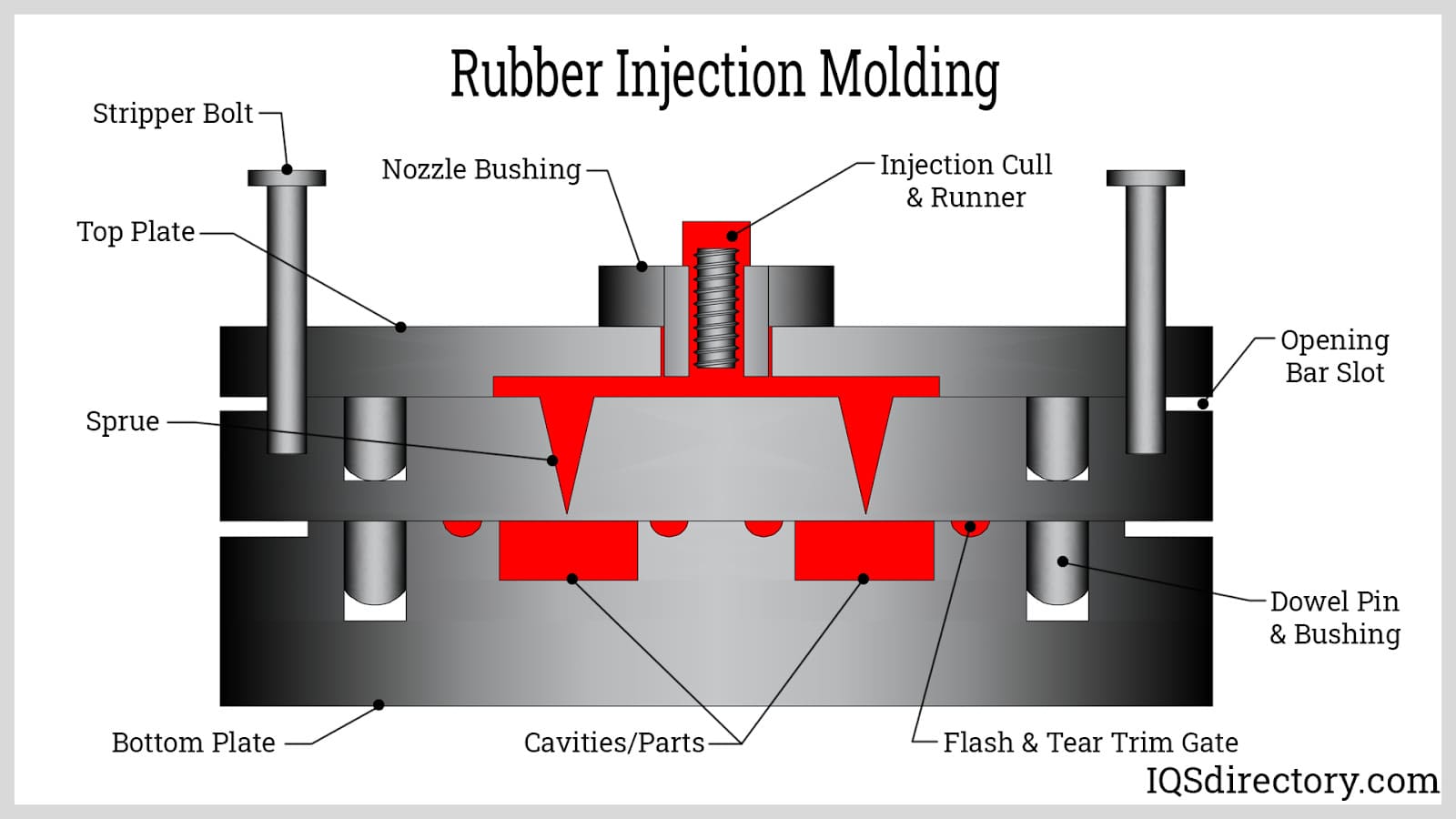
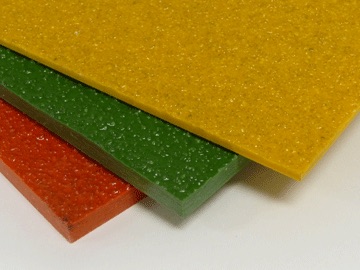 Fiberglass Fabricators
Fiberglass Fabricators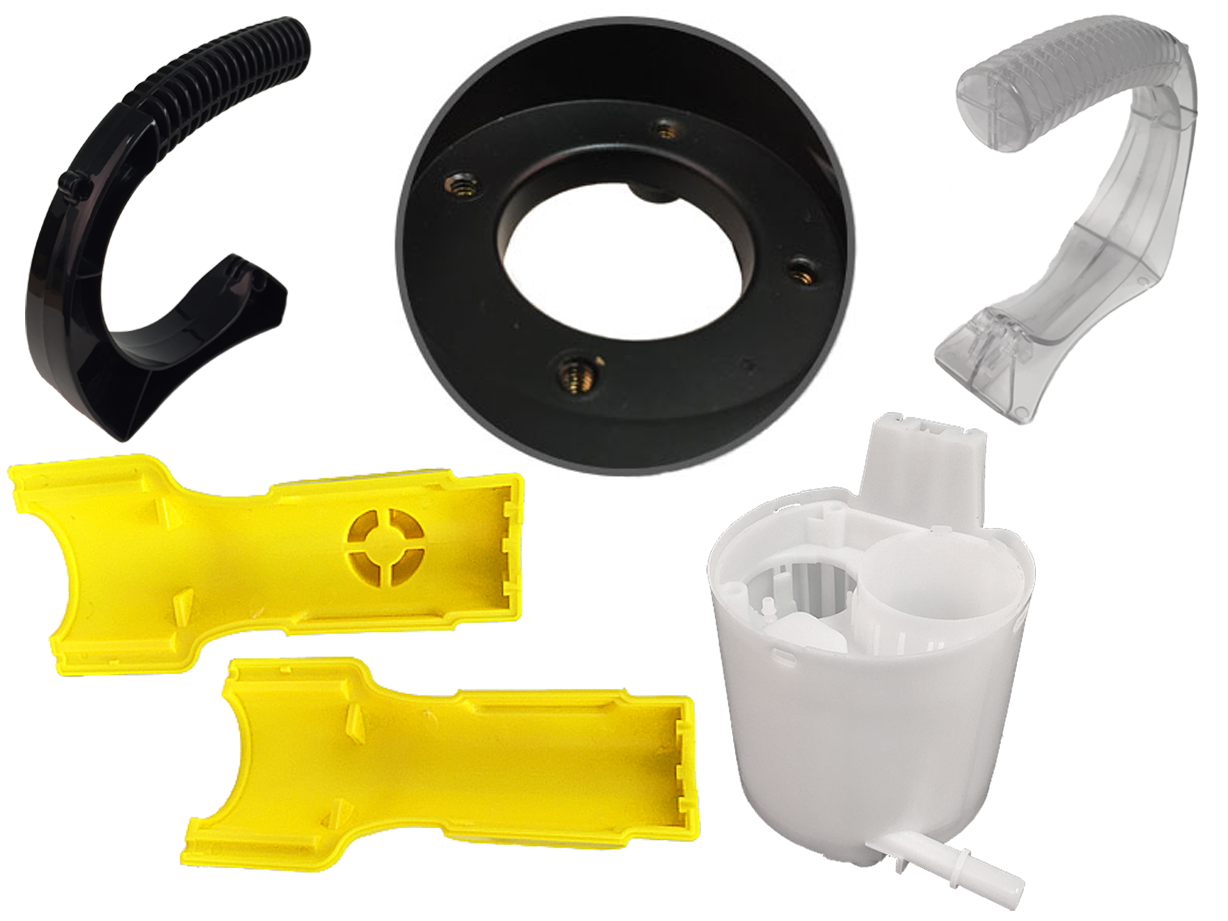 Injection Molded Plastics
Injection Molded Plastics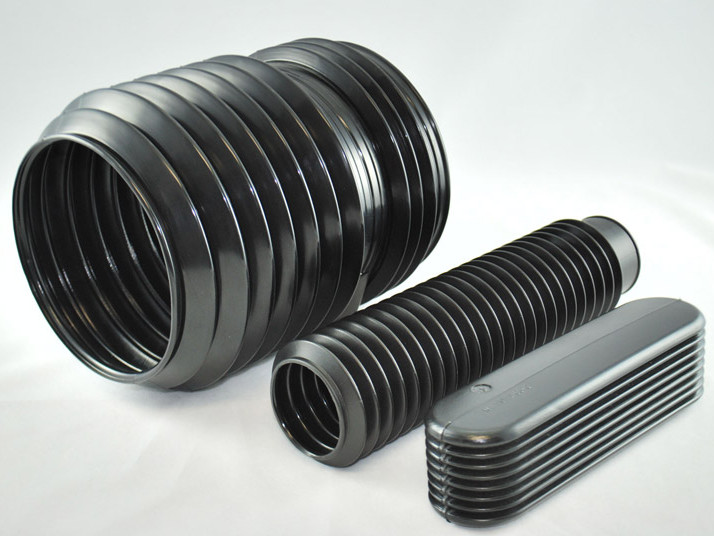 Plastic Blow Molding
Plastic Blow Molding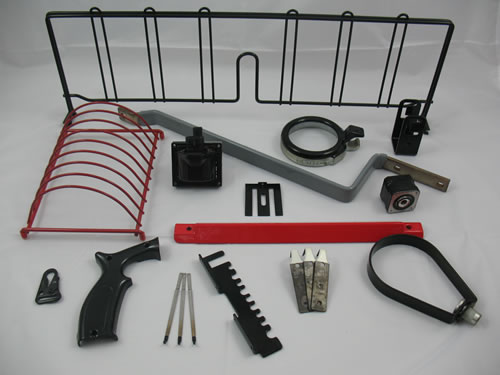 Plastic Dip Molding
Plastic Dip Molding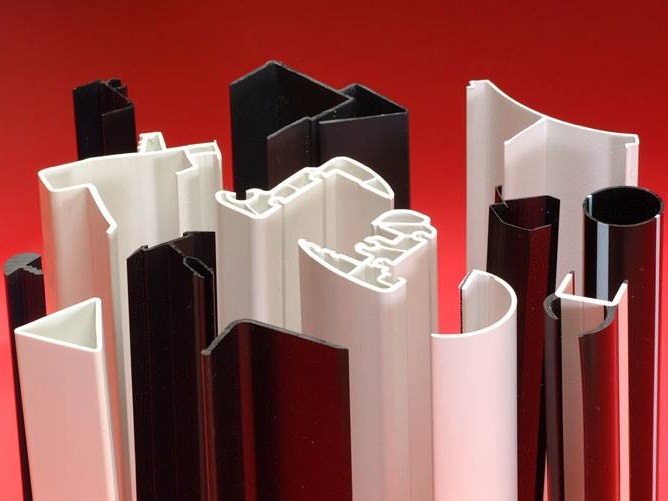 Plastic Extrusions
Plastic Extrusions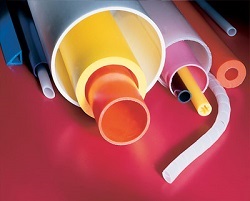 Plastic Tubing
Plastic Tubing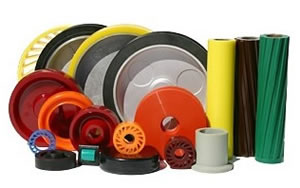 Polyurethane Molding
Polyurethane Molding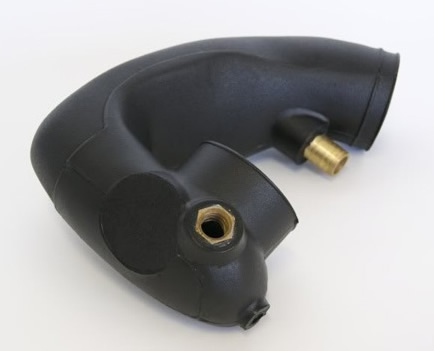 Rotational Molding
Rotational Molding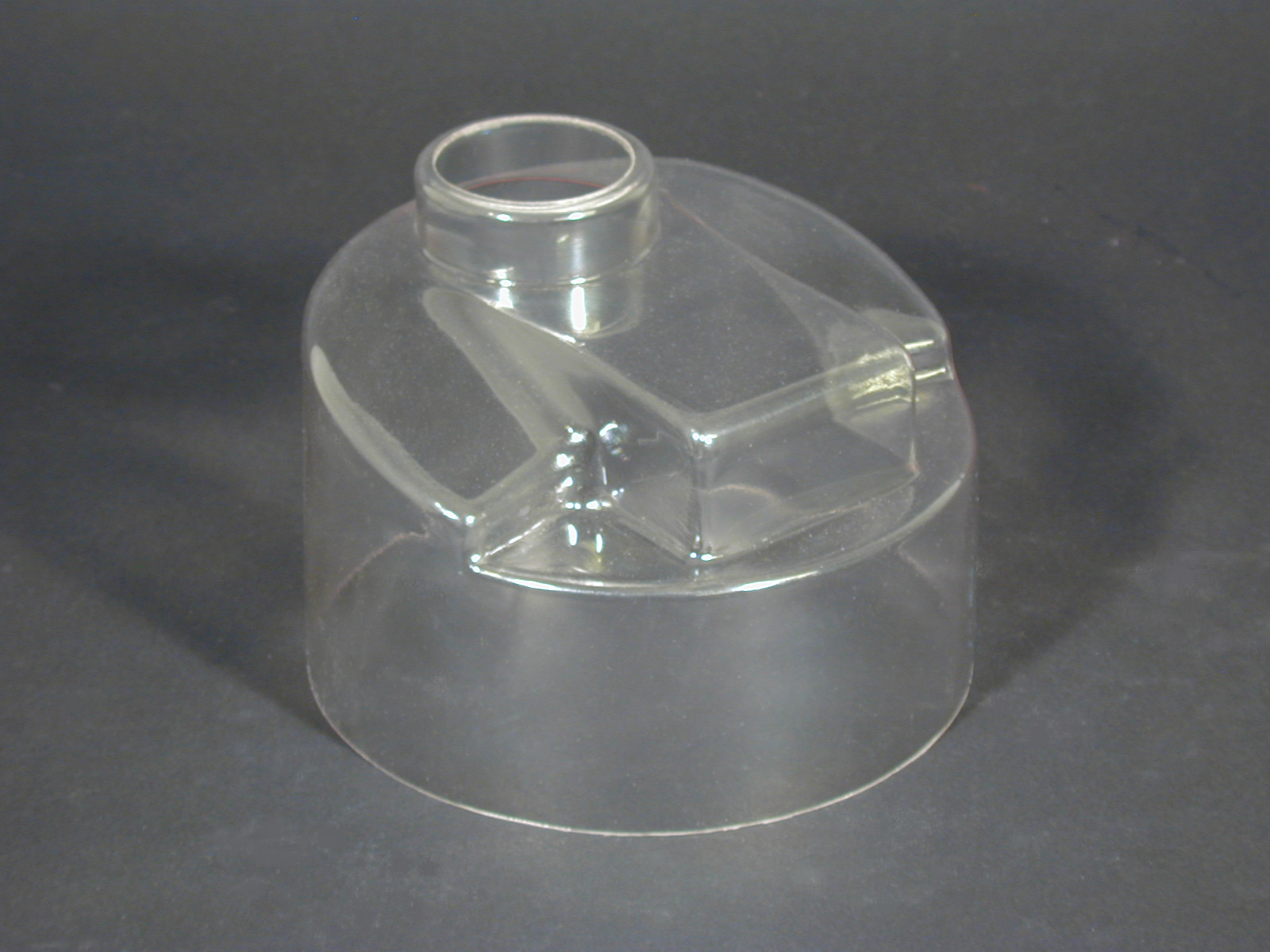 Vacuum Forming
Vacuum Forming Castings & Forgings
Castings & Forgings Bulk Material Handling
Bulk Material Handling Electrical & Electronic Components
Electrical & Electronic Components Flow Instrumentation
Flow Instrumentation Hardware
Hardware Material Handling Equipment
Material Handling Equipment Metal Cutting Services
Metal Cutting Services Metal Forming Services
Metal Forming Services Metal Suppliers
Metal Suppliers Motion Control Products
Motion Control Products Plant & Facility Equipment
Plant & Facility Equipment Plant & Facility Supplies
Plant & Facility Supplies Plastic Molding Processes
Plastic Molding Processes Pumps & Valves
Pumps & Valves Recycling Equipment
Recycling Equipment Rubber Products & Services
Rubber Products & Services